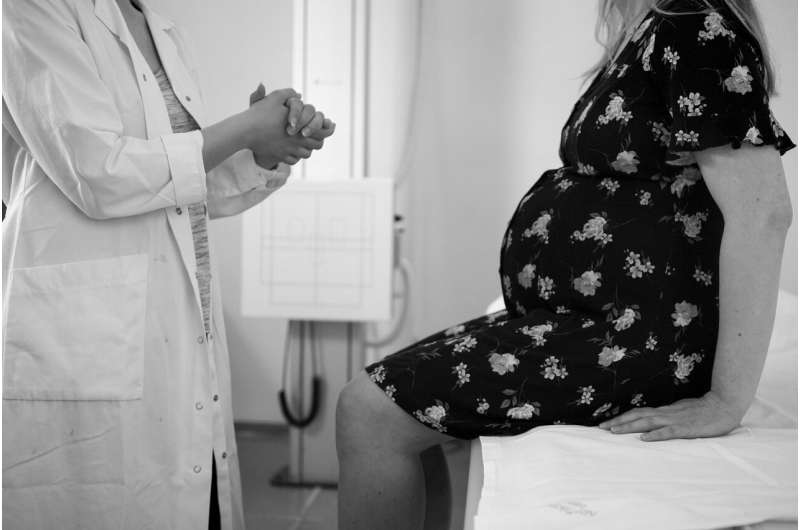This article has been reviewed according to Science X's editorial process and policies. Editors have highlighted the following attributes while ensuring the content's credibility:
fact-checked
peer-reviewed publication
trusted source
proofread
New study has potential to transform cancer care for expectant mothers in the UK

A new study that provides the U.K.'s first comprehensive assessment of cancer during pregnancy can lead to improved treatment, outcomes and experiences of patients and their families, say experts.
Increasing numbers of women are being diagnosed with cancer during pregnancy—with estimates suggesting that as many as two women per day are receiving the heartbreaking news.
Despite this, there is insufficient U.K. data regarding diagnosis, treatment and outcomes due to a lack of routine clinical data collection.
Led by the University of Dundee, in collaboration with the University of Surrey and charity Mummy's Star, the CAnceR IN PreGnancy (CARING) study is the first report of diagnosis, management and outcomes for a range of cancer types diagnosed during pregnancy in the U.K.
The study collected information about cases of cancer diagnosed during pregnancy in women aged 16 years and older in the U.K. from 2016–2020. Information included the mothers' age, the type of cancer, what symptoms they had at diagnosis, what treatments they received, and the outcomes for mother and baby.
The study has been published in the British Journal of Cancer.
Dr. Mark Baxter, from Dundee's School of Medicine, said that the team hopes the work will open discussions on how to improve data collection at a national level, and help design and inform future research and clinical practice.
He said, "Cancer of any type can be diagnosed during pregnancy. Each year more expectant mothers are being diagnosed with cancer. This may be because more women are delaying pregnancy until later in life, and we know that the risk of many cancers increases with age.
"Pregnancy may complicate cancer diagnosis and treatment due to the need to consider the safety of the unborn child. Pregnancy also presents considerable challenges around the decision-making required of parents and doctors regarding treatment and care options.
"There is a need to prospectively collect robust data to inform patient choice and treatment decisions, but, remarkably, this vital information is not currently routinely collected. Our findings show that collecting this data is possible, and that more research is needed.
"The development of a national data framework would enable comparison of U.K. data against other nations and facilitate collaborative work to review treatment, outcomes and experiences of patients and their families."
Dr. Jenny Harris, from the University of Surrey's School of Health Sciences, added, "A cancer diagnosis is always challenging but during pregnancy it can feel devastating to mothers and their wider family. Diagnosis and care can be further complicated because most doctors, nurses and midwives will have little experience of cancer during pregnancy and there is limited U.K. data on which to base their decision-making, increasing feelings of uncertainty.
"We need future research to help us understand how multidisciplinary teams can best treat and care for these mothers, including supporting their psychological well-being."
More information: M. A. Baxter et al, CAnceR IN PreGnancy (CARING)—a retrospective study of cancer diagnosed during pregnancy in the United Kingdom, British Journal of Cancer (2024). DOI: 10.1038/s41416-024-02605-x




















